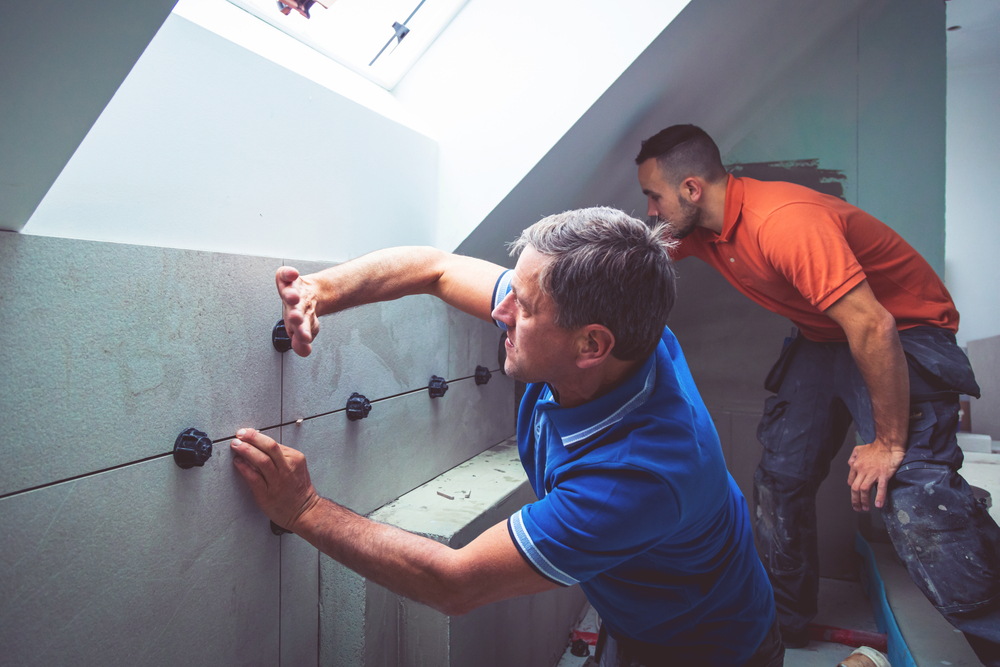How much does it cost to tile a kitchen? [2026]
$30 to $0
These prices are based on national averages
These prices are based on national averages

Tiling a kitchen involves several factors that affect the overall cost. Here’s a breakdown to help estimate the expenses for tiling a kitchen:
Tiling a kitchen involves various factors including tile type, size, layout complexity, and labor costs. By consulting with professionals and gathering multiple quotes, you can ensure a tailored approach that fits your budget and achieves the desired outcome for your kitchen tiling project.
Get answers here
The cost of tiling a kitchen can be affected by several factors: Tile Type: The type of tile you choose, such as ceramic, porcelain, natural stone, or glass, will impact the overall cost. Premium tiles are generally more expensive than standard options. Tile Size and Design: Larger tiles or those with intricate patterns and designs may increase the cost. Custom or designer tiles are usually more costly. Surface Area: The size of the area being tiled, including floors, walls, and backsplashes, affects the total cost. Preparation Work: Costs can rise if significant surface preparation is needed, such as removing old tiles or repairing damaged surfaces. Labor Costs: Hiring a professional tiler will contribute to the overall cost. Rates vary based on location, complexity of the job, and the tiler’s experience.
The time required to tile a kitchen depends on: Kitchen Size: Larger kitchens will take more time to tile compared to smaller ones. Tile Type and Pattern: Complex tile patterns or layouts can extend the installation time. Simple tiling will be quicker. Surface Preparation: Additional time may be needed if extensive preparation is required, such as cleaning or repairing surfaces. Installer Experience: An experienced professional can complete the job more efficiently than someone less experienced. On average, tiling a kitchen can take between 2 to 5 days, including time for grout and adhesive to set and any additional finishing touches.
Several types of tiles are suitable for kitchen use: Ceramic Tiles: Affordable and versatile, ceramic tiles are a popular choice for kitchen floors and backsplashes. They come in various sizes and finishes. Porcelain Tiles: Known for their durability and water resistance, porcelain tiles are ideal for high-traffic areas and kitchen floors. Natural Stone Tiles: Options like marble, granite, and travertine add a luxurious look but may require more maintenance and sealing. Glass Tiles: These tiles can add a modern touch and are often used as accents or for backsplashes. They are resistant to moisture but can be more fragile.
While tiling a kitchen can be a DIY project, there are benefits to hiring a professional: Expertise: A professional tiler ensures that the installation is done correctly and all tile patterns and seams are properly aligned. Efficiency: Professionals can complete the job more quickly and efficiently, saving you time and effort. Problem Resolution: A professional can handle any unexpected issues, such as uneven surfaces or complex tile layouts. If you have the necessary skills and tools, you might choose to tile the kitchen yourself. However, for a flawless finish and to avoid potential issues, hiring a professional is recommended.
When selecting tiles for your kitchen, consider the following: Durability: Choose tiles that can withstand heavy foot traffic and frequent use. Porcelain and ceramic are generally more durable options. Ease of Cleaning: Opt for tiles that are easy to clean and maintain, especially for areas prone to spills and stains. Slip Resistance: For kitchen floors, select tiles with a slip-resistant rating to prevent accidents. Style and Aesthetics: Choose tiles that match your kitchen décor and personal style. Consider color, pattern, and finish. Budget: Set a budget that includes not only the cost of the tiles but also installation, grout, and any additional materials needed.
Today is the day to build the home of your dreams or get that repair fixed. Share your project with local vetted tradespeople and begin the journey.

Our tradespeople offer guarantees ranging from 1 to 12 months
We show your job to relevant tradespeople near you
Our feedback system ensures that tradespeople are rewarded.